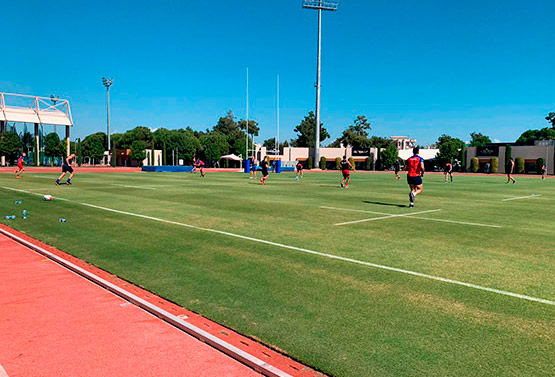Top Tips for Physical And Mental Health During this Period
It is a very challenging period of time for all in the Rugby Community at this moment due to the Covid 19 Pandemic across the World. The challenges are physical, mental and socioeconomically for all involved in the sport. The release of the World Rugby Covid 19 guidelines in the last week is great news with direction and a plan for the future for the Rugby Community.
At International and Elite Levels, Rugby Players are very well guided with full time employed Sport Science, Strength and Conditioning and Medical Teams, sending programs, staying in touch and advising on all areas to keep players in top condition ready for a progressive return to Rugby.
Below this level, the support for Physical and Mental needs of Player’s during this period drop off considerably, so here are my top Physiotherapy and Health tips for Rugby players at all levels based on what we know at present:
- Develop or Maintain a Good Routine:
Instill good routines now - sleep, diet, training, recovery sessions and then add rugby into your new routine at a later date. It is sometimes hard to install these new routines while playing so use the chance now to develop them and you will start next season a better player than when you left. - Self-Analyse Your Physical Condition for Rugby:
Perform a Self-analysis of your current physical state — as a rugby player what are your strengths? What are your weaknesses? What opportunities are there for you right now to improve the physical qualities within your body? What is preventing you from taking these steps? By doing this you may improve your performance and reduce your risk of future injury. - Resolve and Improve Current /Old Injuries:
If you have any ongoing pain and niggles for example patella or Achilles’ tendon problems or Athletic Groin Pain — now is the time to work on them! It is very difficult in season to work on these injury areas as the combined load of matches, training and working life lead to little time and a reliance on medications. It may still be a significant amount of time before we train/ play rugby, and a 6-12-week intensive rehabilitation program may lead to a significant improvement in your condition. - Home Workouts:
For those that are fit and injury free, ensure your home exercise programs mimic aspects of the game. The game involves explosive sprinting and change of direction, and this is currently missing from many home exercise programs, due to lack of access to weights/space. A way to counter this and get power back to prevent the risk of re-injury on return to rugby is to program drills that are relevant to the game. Down ups, hill running, short sprints, jumping / hopping and burpees mimic the high intensity nature of the game. Get advice if you have never included these in your program before and add to your home workout — you will feel better for it when preseason starts and it could reduce your risk of injury. - Mental Game/Mental Aspects:
At the top level, players individually and in groups have access to many different professionals that bring a new dimension to their recovery and mental aspect of the Game. Sports Psychologists access has lead to an improvement in the mental health aspects. There are many options available here: Meditation, Breathing Routines, Yoga, — it is all being done at the highest levels of the game! There are lots of good books, you tube videos and apps, to explore this important aspect of modern game. - Connect and Stay in touch with Coaches and Team Mates:
This is a challenging time and you are not alone! Join Zoom and enjoy what these meeting with your Rugby Team mates and community can offer!
Final Advice: Stay positive, busy, follow the World Rugby Guidelines on CV19, control what you can control and come out ready for your best season yet!
Best Wishes
Chris
